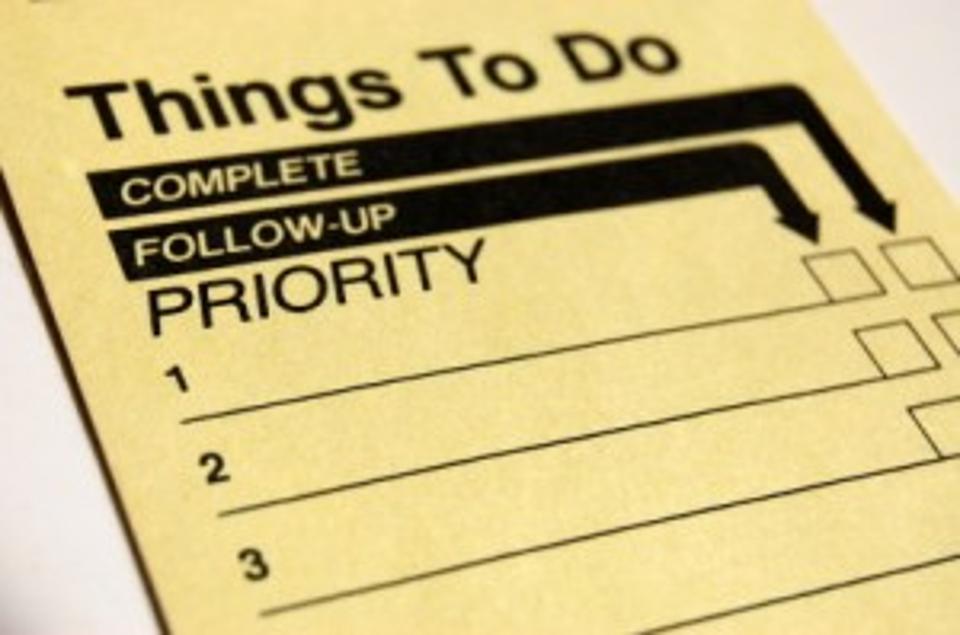What Does A Biz Dev
Person Actually Do?
- Customers: Find new ones and extract more value from current ones.
- Markets: Figure out where new customers “live” (both geographically and in terms of "buying mindset") and find a way to reach them.
- Relationships: Build and leverage relationships founded on trust and integrity to facilitate opportunities.
“Well,” you might say. ”That sounds pretty straightforward.” Yes, it does sound that way. In the simplest of terms, business development may be about figuring out how to sell more to customers or finding new customers to whom to sell. But to suggest that “that’s all there is to it” is to suggest that running a marathon just requires putting one foot in front of the other for 26.2 miles. Of course, training for and running a marathon requires a unique approach to making sure you don’t peter out before the finish line. Similarly, business development requires a unique combination of skills to ensure that the value you derive from an opportunity persists for the long haul:
The Biz Dev Skillsets: Strategy, Sales, and Relationship Management
- Strategy: How should you go about pursuing an opportunity? How do you know which path is best? Just because an opportunity is in front of you, doesn’t mean it’s a good one. Understanding the fundamental drivers of your business, and the business of your customers, partners, and competitors is critical to being able to make wise decisions in the pursuit of long-term value. Being able to assess an opportunity for its potential to create long-term value, determine the paths available to you to pursue it, and understand the trade-offs and risks of one path vs. another, are core Biz Dev functions.
- Sales: Whether you're selling a product or the idea of a partnership, almost every business development role has some element of sales. The process of navigating through an organization, identifying decision-makers and uncovering their unmet needs, and concisely demonstrating the value of what you can offer are core sales skills needed whether you're selling a product, service, or partnership.
- Relationship Management: From How to Win Friends and Influence People to Never Eat Alone, much ink has been spilled on the importance and value of strong, respect-based relationships. Business development requires not only having an expansive network to help you facilitate a deal, but also a deep understanding of how to build and maintain new relationships to leverage them when needed. Relationships with partners, customers, colleagues, and even the media, can all be crucial factors in not only getting in the door to a biz dev opportunity but keeping it open.
“Wait a second,” you’re asking. ”You forgot about partnerships? Isn’t business development all about partnerships?” In short, no, it's not. Partnerships are a common course to pursue a given business development opportunity, but they are but one option amongst many when evaluating the path to creating long-term value. And though scouting, signing, and developing partnerships is an everyday task in many business development roles, the skills required for partnerships are really an amalgam of all other Biz Dev skills — a mix of sales, relationship management, and strategy. As frequently as they arise in the day job of business development, partnerships are only one potential outcome of Biz Dev done right.
How Biz Dev Roles Change by Company Size
Do the role of business development change as a company matures from a startup to enterprise? Yes and no. In the early stages of any company, the role of business development is often left to the founder, CEO, or an early hire. The role of forging partnership deals does take on an increased priority, as the decision of which potential path to pursue an opportunity often favors the sharing of resources that's incumbent in partnerships. But the day-to-day activities of business development remains the same: at a startup or a large company alike, whoever plays the role of "biz dev guy/gal" must be constantly evaluating the best path to create long-term value, whether it an option built in-house or pursued in partnership with others.
At larger companies, the role of business development may be divided across a broader array of individuals. Sure, teams of people with "Business Development" on their business cards may focus on the full spectrum of activities, from sourcing business development opportunities to evaluating the opportunity's potential to create long-term value and following through on the execution. But just as often, the individual functions of the business development role may be split across an organization: a member of the sales team may source feedback from customers, who passes along an opportunity to create a new product to the Product Management team, who works with Finance to size and evaluate an opportunity and Operations to assess the resources needed to pursue it. Perhaps none of those individuals consider themselves to be serving a "Business Development" function, but in total they are a collective BD team that seeks to create long-term value for their organization in very much the same way as an individual who plays every part.
Pure Biz Dev
In my view, a “pure” Biz Dev job will have some combination of all of the above skillsets — identifying and strategically assessing an opportunity to create long-term value and then executing on a path to pursue that value. But whether you're playing Biz Dev as a team sport or an individual contributor, the interplay between Strategy, Sales, and Relationship Management informs the potential for a company's growth path. Business Development is a function that is varied, complex, and exciting — although the nature of Biz Dev may be ambiguous to some, the importance of the role should be clear to all.
Chuck Reynolds
Contributor
Alan Zibluk Markethive Founding Member

